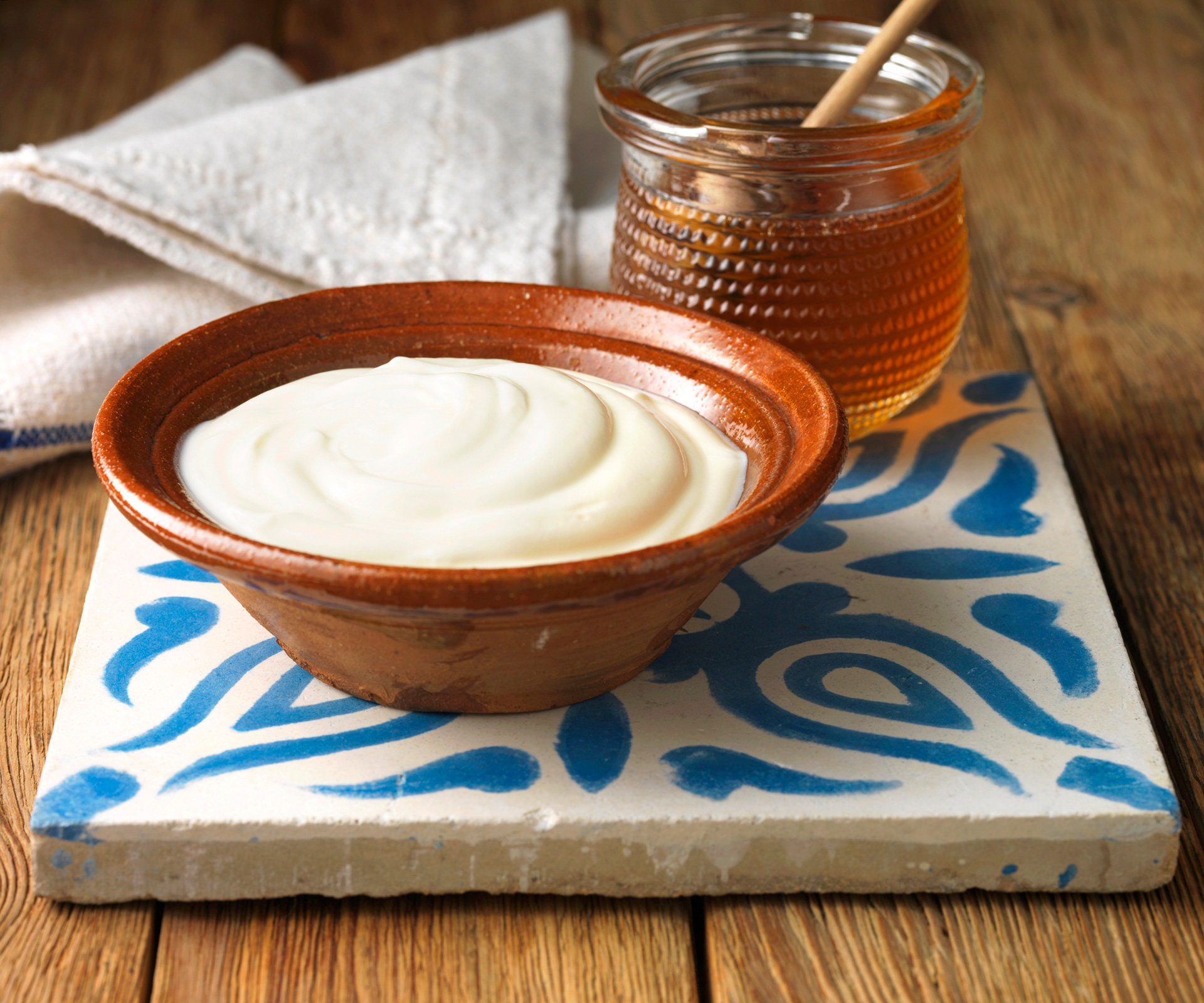You have to admire our ancestors for their resourcefulness. In the third millennium BC, goatherds in what is now Turkey didn’t want to waste milk they’d collected, so they worked out a way to preserve it using goatskin bags. The milk fermented when it came into contact with bacteria in the bags, which caused it to thicken and last much longer: they had just given the world yogurt.
Yogurt was first thought to have health benefits in 1542, when it was given to French king Francois I by the Sultan of the Ottoman Empire and appeared to cure the king’s dodgy stomach. But it wasn’t until the 20th century that scientists worked out what it is about yogurt that’s good for us.
As well as containing calcium, potassium, magnesium and vitamins B6 and B12, it’s also a good source of protein. But the real magic comes from the probiotics it contains. These are healthy bacteria that result from the fermentation process and are believed to play an important part in regulating our digestive systems and easing symptoms like gas, bloating, diarrhoea and constipation. It’s thought they can also boost the immune system to help us ward off disease and make us more resistant to infection.
According to some studies, the active cultures in yogurt may be particularly good at protecting against yeast infections. Research published in the journal BMC Medicine last year found that people who eat yogurt every day have a lower risk of developing type 2 diabetes; another study commissioned by the American Heart Association showed that if you add yogurt to your diet without increasing the number of calories you eat, you may be able to lower your risk of high blood pressure.
Yet another study, published in the journal of the American Society of Microbiology, found that eating yogurt containing the probiotic Lactobacillus rhamnosus protected children and pregnant women against exposure to toxic metals such as mercury and arsenic. The calcium content of yogurt means it can help build strong bones and reduce the chances of getting osteoporosis, and other trials suggest that people who are lactose intolerant may, in some cases, be able to tolerate yogurt better than other dairy products.
Among all the praise being sung for this food is one bum note. A study carried out at the Autonomous University of Madrid found that contrary to previous research, eating yogurt regularly did not lead to any significant improvement in the participants’ health-related quality of life. However, it was later pointed out that the study did not distinguish between sugar-sweetened and unsweetened yogurt.
In fact, this food can go from being one of the good guys to one of the bad if sweetened. Many commercially prepared versions contain huge amounts of sugar – in some cases almost equivalent to that of soft drinks. So aim to buy yogurt that has less than 10g of sugar per serving, and more protein per serving than sugar.
Frozen yogurt may sound like a great alternative to ice cream, but it can contain a lot of sugar, and the active cultures that are so beneficial can be killed if the product has been heat-treated.
It’s also worth bearing in mind that Greek yogurt, which is thicker than other yogurts, may not be as good a source of calcium as other types. It’s made by straining regular yogurt and removing the liquid whey – this boosts the protein content but reduces the amount of calcium.
Plain, unsweetened yogurt is the best kind to eat. If it’s a bit tart for your taste, add chopped fruit, cinnamon, desiccated coconut or a little honey.
Photos by Getty Images


